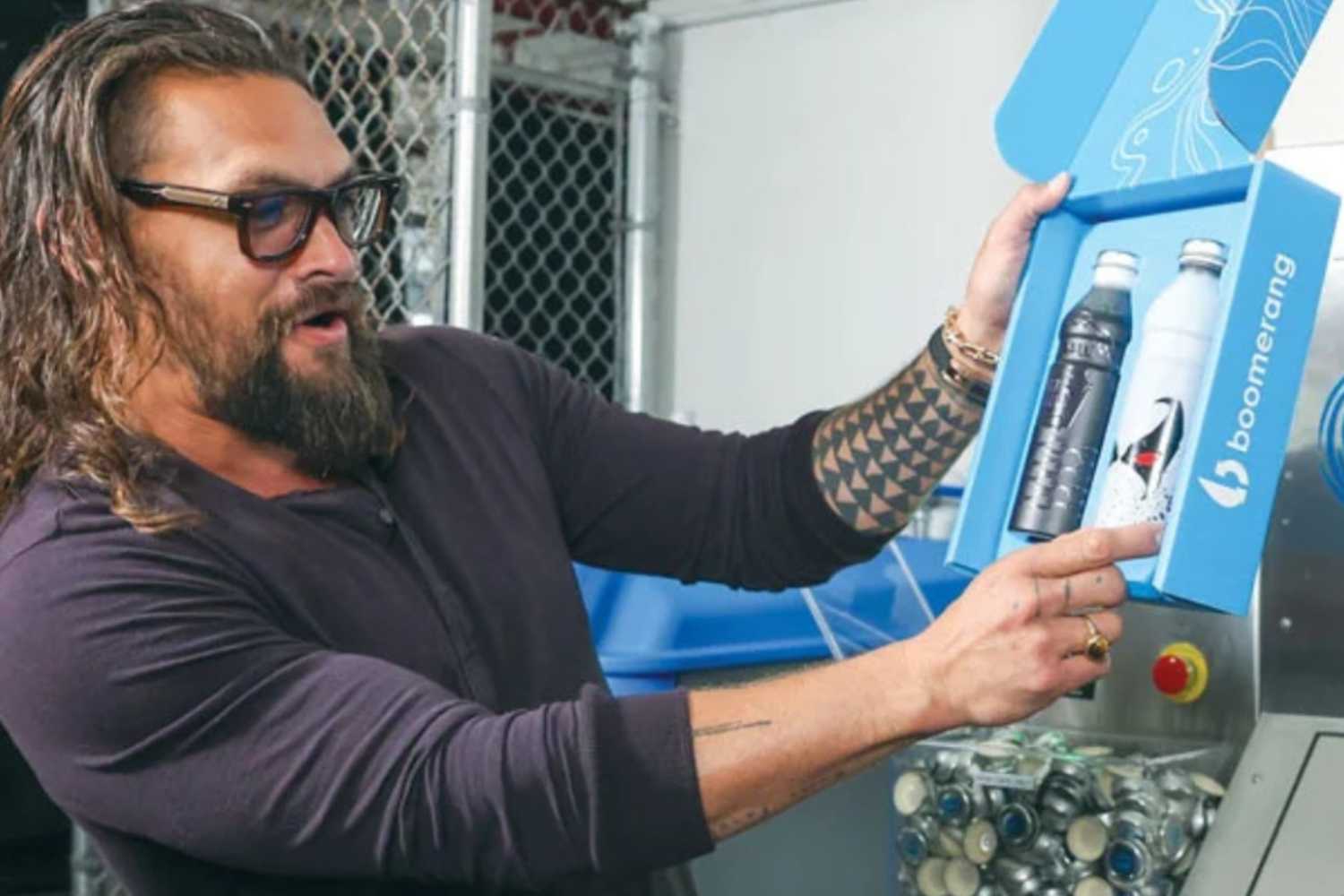Jason Momoa teams up with Boomerang Water to replace single-use plastic bottles with reusable aluminum ones on film sets, in hotels, and schools across Hawaii and beyond.

@mananalu/Instagram
After wielding the trident as Aquaman, Jason Momoa is still fighting for the ocean—this time off-screen. With his brand Mananalu and in partnership with Boomerang Water, the Hawaiian actor has launched a project to eliminate single-use plastic bottles from places like film sets, hotels, schools, and resorts.
The plan is deceptively simple, yet potentially revolutionary. On-site machines filter, fill, and sanitize reusable aluminum bottles using local water sources. Think of it as a modern take on the old milkman routine: full bottles are delivered, empties are collected, cleaned, and sent back into circulation. It’s circular economy at its most tangible.
From film sets to a wider stage
While filming Chief of War across Hawaii and New Zealand, Momoa swapped every single plastic bottle used by the crew for reusable aluminum ones. Each member of the production had constant access to sustainable hydration—no excuses, no plastic. His goal? “To make every set and studio ban plastic forever.” It’s an ambition that blends his Hollywood influence with a deeply personal environmental mission.
Hotels and schools join the movement
Some of Hawaii’s most high-profile hotels have already signed on: The Twin Fin, Romer House Waikīkī, ‘Alohilani Resort Waikīkī Beach, Four Seasons Resort Hualālai, Four Seasons Lāna‘i, and Four Seasons Ko Olina. Even schools like Kamehameha Schools Kapālama have joined the initiative.
The idea is to create a new normal—one where returning a bottle for reuse is second nature, rather than tossing it in the trash. According to Boomerang founders Jason Dibble and Jerrod Freund, if each guest in Hawaii’s roughly 50,000 hotel rooms drank just two bottles a day, that would mean 100,000 bottles—daily. That’s about 110 tons (100 metric tons) of waste per month, not counting the environmental cost of shipping bottled water to the islands.
With the new system, some sites are already seeing 95% bottle return rates. That’s not just a statistic—it’s a glimpse of what systemic change can look like.
A natural calling for momoa
For Momoa, who grew up surrounded by the Pacific, the project feels like a natural extension of who he is. “The ocean is everything to me,” he’s said in past interviews, and this venture is his way of turning celebrity spotlight into a tool for change. By combining technology, circular economy principles, and environmental passion, he’s hoping to make sustainable hydration the industry standard—not just an eco-friendly extra.
Source: Mananalu Water
